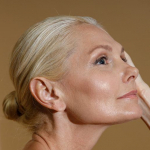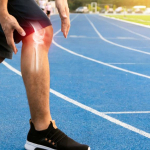How can i reverse my face aging?
Published:
Categories: CollagenSkin aging is a natural part of life that we all experience as we get older. However, premature skin aging caused by sun exposure, poor lifestyle habits, and environmental factors can accelerate the aging process and cause wrinkles, fine lines, sagging skin, and other signs of aging to develop much earlier.
Contents:
- What Causes Skin Aging?
- Can You Reverse Skin Aging?
-
Ways to Reduce and Reverse Skin Aging
- Protect your skin daily with broad spectrum sunscreen.
- Quit smoking and avoid secondhand smoke.
- Cleanse and moisturize your skin daily.
- Eat a healthy, antioxidant-rich diet.
- Reduce stress and get enough sleep.
- Upgrade your skincare routine with anti-aging ingredients.
- Choose in-office treatments for moderate-advanced aging.
- Wear sunglasses and hats to protect delicate eye and facial skin.
- Don't smoke, tan, or use tanning beds.
- Manage chronic skin conditions.
- Protect Your Skin Today for a Youthful Tomorrow
-
Frequently Asked Questions About Reducing and Reversing Skin Aging
- What is the best age to start using anti-aging skincare?
- What ingredients should I look for in anti-aging products?
- How can I tell if a product is working?
- How can I reduce signs of aging without products?
- Do anti-aging products really work?
- When should I see a dermatologist for aging skin?
- Are there any risks to anti-aging treatments?
- What results can I realistically expect?
- What if I can't afford expensive anti-aging products and treatments?
- Resources used to write this article
While you can't stop the passage of time, there are many steps you can take to slow down skin aging and even reverse some of the visible signs of aging to restore a more youthful complexion. Read on to learn 10 effective ways to reduce and reverse skin aging for healthier, younger-looking skin.
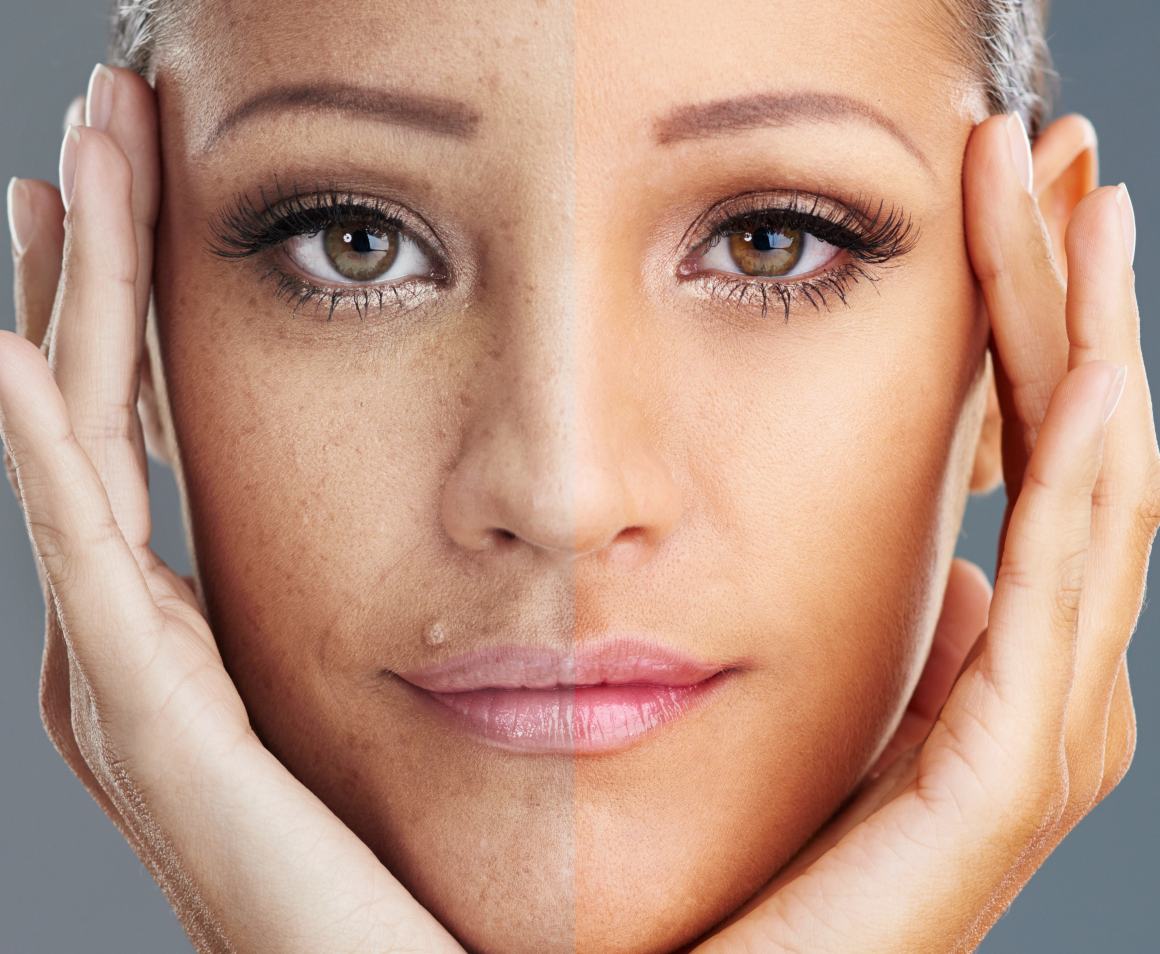
What Causes Skin Aging?
Before we dive into ways to reduce and reverse skin aging, let's first look at what causes our skin to age in the first place. As we age, our skin gradually loses collagen, elastin, and hyaluronic acid - compounds that help keep skin smooth, firm, and plump. This causes skin to become thinner and lose volume over time.
The natural aging process causes skin to lose about 1% of its collagen each year after age 20. Therefore, the biggest factor in skin aging is intrinsically the passage of time. However, extrinsic factors like sun exposure can accelerate collagen and elastin breakdown, leading to premature aging.
Can You Reverse Skin Aging?
While we can't stop intrinsic skin aging altogether, we can slow down the visible signs of aging and even reverse some damage through dedicated skin care and lifestyle measures.
Board-certified dermatologists confirm it is possible to reverse signs of skin aging like wrinkles, sagging skin, age spots, and uneven skin tone to reveal fresher, younger-looking skin. However, reversing severe skin aging requires professional anti-aging treatments.
For mild to moderate skin aging, using topical anti-aging skincare products and following the tips below can visibly reduce signs of aging and help your skin look 5-10 years younger. Let's look at the 10 best ways to care for your skin to maintain a youthful glow as you age.
10 Ways to Reduce and Reverse Skin Aging
1. Protect your skin daily with broad spectrum sunscreen.
Sun exposure is the number one cause of skin aging, causing up to 90% of visible facial aging signs. UV exposure breaks down collagen and elastin and triggers the production of enzymes that damage skin cells. It also causes dark spots and rough skin texture over time.
- Wear broad spectrum SPF 30 sunscreen or higher every day, even when it's cloudy. Reapply every 2 hours when outdoors.
2. Quit smoking and avoid secondhand smoke.
Smoking cigarettes accelerates the aging process and leads to wrinkled, uneven skin tone. The toxic chemicals in smoke break down collagen and impair blood flow to the skin. Secondhand smoke has similar effects. If you smoke, the best anti-aging step you can take is to quit!
3. Cleanse and moisturize your skin daily.
- Gently cleanse your face twice a day with a mild cleanser to remove dirt, oil, and impurities. This prevents clogged pores and allows anti-aging ingredients to better penetrate.
- Apply a rich moisturizer after cleansing while skin is still damp. Look for hydrating and anti-aging ingredients like hyaluronic acid.
- Exfoliate 1-2 times per week to remove dead skin cells and reveal fresher skin.
- Don't over-wash or use harsh products that strip natural oils - this can increase wrinkles!
4. Eat a healthy, antioxidant-rich diet.
What you eat affects your skin. A diet rich in antioxidants helps combat free radicals that damage and age skin cells. Eat plenty of:
- Colorful fruits and vegetables
- Nuts, seeds and fatty fish
- Green tea and berries
Avoid inflammatory foods like refined carbs, trans fats and added sugars that accelerate aging. Stay hydrated by drinking water throughout the day.
5. Reduce stress and get enough sleep.
Chronic stress and sleep deprivation cause an increase in cortisol and inflammation in the body that speeds up skin aging. To minimize skin damage:
- Learn healthy stress management techniques like exercise, meditation, or yoga.
- Get 7-9 hours of quality sleep per night.
- Consider collagen supplements to reduce stress-related skin aging.
6. Upgrade your skincare routine with anti-aging ingredients.
Using advanced topical skincare ingredients can noticeably reduce lines, wrinkles, dullness, and other signs of aging skin. Look for these powerful antioxidants and collagen boosters:
- Vitamin C: Boosts collagen, improves uneven skin tone, and protects against free radicals.
- Retinol: Increases cell turnover to smooth fine lines and stimulate collagen. Start slow.
- Peptides: Stimulate collagen production to improve firmness. Great for mature skin.
- Hyaluronic acid: Deeply hydrates and plumps skin to fill out lines.
7. Choose in-office treatments for moderate-advanced aging.
For more advanced skin aging or areas unresponsive to topical products, professional anti-aging skin treatments take results to the next level. Treatments to discuss with your dermatologist include:
- Laser skin resurfacing: Smooths skin texture and reduces wrinkles, scars, and spots by enhancing collagen production. Multiple treatments are typically needed.
- Dermal fillers: Instantly plump wrinkles or lost facial volume using injectable fillers like Juvederm. Results last up to 2 years.
- Chemical peels: Exfoliate away dull surface skin and stimulate new collagen growth for smoother, firmer skin. Light peels have minimal down time.
- Microneedling: Tiny needles create micro-injuries in skin to stimulate collagen and elastin. Used alone or with PRP.
- Botox: Temporarily paralyzes facial muscles to smooth dynamic wrinkles around eyes, forehead, and mouth for 3-6 months.
8. Wear sunglasses and hats to protect delicate eye and facial skin.
The thin skin around the eyes and lips is most prone to showing signs of aging first. Shield these areas from sun damage by:
- Wearing UV blocking sunglasses when outdoors.
- Wearing wide-brimmed hats to shade the face.
- Choosing moisturizers formulated specifically for the eye area.
9. Don't smoke, tan, or use tanning beds.
As mentioned earlier, smoking severely ages skin by breaking down collagen. Tanning is also extremely aging due to UV damage. Skip the tanning bed - a "base tan" offers minimal protection and tanning beds emit intense UV rays that rapidly age skin. Embrace your natural skin tone!
10. Manage chronic skin conditions.
Ongoing inflammatory skin conditions like eczema or psoriasis can cause changes that age skin faster over time. See a dermatologist to properly manage these conditions and minimize long-term effects on skin. Use medications as directed and avoid triggers that aggravate skin.
Protect Your Skin Today for a Youthful Tomorrow
While we can't stop intrinsic skin aging, we can minimize premature aging from sun exposure and other factors by caring for our skin. It's never too late to start an anti-aging skincare routine and reverse existing signs of aging for a more youthful appearance!
The key is protecting your skin from the sun, staying hydrated, managing stress, and using the right anti-aging skincare ingredients and professional treatments tailored to your skin's needs. Implementing good skin care habits now helps maintain a healthy, glowing complexion for decades to come.
Here are some important tips to remember:
- Wear sunscreen with SPF 30 or higher every day.
- Quit smoking and minimize sun exposure.
- Cleanse, exfoliate, and moisturize skin daily.
- Eat a diet high in antioxidants like fruits, veggies, fatty fish, and green tea.
- Reduce stress and get enough sleep.
- Use topical skincare with retinol, vitamin C, hyaluronic acid, and peptides.
- Try in-office treatments like lasers, peels, microneedling, fillers, Botox.
- Protect your eyes and lips with sunglasses and moisturizer.
- Never tan or use tanning beds.
- See a dermatologist for chronic skin conditions.
By maintaining good habits and using the most effective anti-aging solutions available, you can enjoy beautiful, youthful skin for years to come. What steps will you take starting today?
Frequently Asked Questions About Reducing and Reversing Skin Aging
Reducing and reversing skin aging takes dedication, but it is possible! Here are answers to some frequently asked questions about caring for mature skin:
What is the best age to start using anti-aging skincare?
It's never too early to start thinking about anti-aging! Begin using SPF daily in your 20s. In your 30s, add antioxidants like vitamin C to prevent damage. Use more active collagen builders like retinol and peptides in your 40s+ as needed to combat existing signs of aging. Always introduce new anti-aging actives slowly.
What ingredients should I look for in anti-aging products?
Look for proven powerhouses like broad spectrum SPF 30 sunscreen, vitamin C, retinol, peptides, hyaluronic acid, and niacinamide on the ingredient label. Avoid heavily fragrances products and harsh ingredients like alcohol that can irritate aging skin.
How can I tell if a product is working?
Consistent use of effective anti-aging products will gradually improve skin firmness, smoothness, hydration, brightness, and tone. Take photos every few months to track changes. Make sure to use the product as directed for at least 3-4 months before switching. Look for other signs like smaller looking pores and reduced makeup settling into lines and wrinkles.
How can I reduce signs of aging without products?
Protecting skin from sun, eating healthy, managing stress, exercising, drinking water, and not smoking will all slow signs of aging even without products. Proper cleansing and moisturizing also goes a long way. But active topical skincare and professional treatments take anti-aging results to the next level. Lifestyle measures help maximize their effectiveness.
Do anti-aging products really work?
Yes, products containing proven anti-aging ingredients like retinol, vitamin C, and alpha hydroxy acids have been extensively studied and shown to reduce fine lines and wrinkles, improve skin texture, protect from oxidation, and stimulate collagen when used correctly. However, they will not permanently stop the aging process. Consistent use is key to maintain results.
When should I see a dermatologist for aging skin?
See a board certified dermatologist if you have severe skin aging, sun damage or pigmentation, pre-cancerous spots, loss of facial volume, deep creases, or sagging skin your topicals aren't improving. A dermatologist can recommend medical grade treatments like laser resurfacing, filler injections, or advanced chemical peels personalized to your skin concerns. Don't try to "fix" severe aging on your own.
Are there any risks to anti-aging treatments?
Non-invasive anti-aging treatments like retinols, vitamin C, and hyaluronic acid serums have minimal risks with proper use. More intensive treatments like chemical peels, laser resurfacing, filler injections, and botox require an experienced provider to avoid complications like burns, scarring, or incorrectly placed fillers. Always see a board certified dermatologist.
What results can I realistically expect?
How much aging you can reverse depends on your skin's condition to begin with and your commitment to proper skincare long-term. Mild aging like fine lines can often be improved with diligent topical use. But severe sun damage or volume loss will require multiple in-office treatments over months for significant improvement, not a quick fix. Set realistic expectations.
What if I can't afford expensive anti-aging products and treatments?
There are many drugstore anti-aging products available at lower price points. Look for brands that contain proven ingredients like retinol, vitamin C, SPF30, niacinamide, and peptides. Creating healthy daily skincare habits using affordable products will still benefit your skin greatly in the long run.
Resources used to write this article
American Academy of Dermatology Association. (2022). Skin care & aging. https://www.aad.org/public/everyday-care/skin-care-secrets/anti-aging/skin-care-aging
Farage, M. A., Miller, K. W., Elsner, P., & Maibach, H. I. (2008). Intrinsic and extrinsic factors in skin ageing: a review. International Journal of Cosmetic Science, 30(2), 87–95. https://doi.org/10.1111/j.1468-2494.2007.00415.x
Mayo Clinic. (2021). Aging skin: Tips for managing common skin problems. https://www.mayoclinic.org/healthy-lifestyle/adult-health/in-depth/skin-care/art-20048237
Papakonstantinou, E., Roth, M., & Karakiulakis, G. (2012). Hyaluronic acid: A key molecule in skin aging. Dermato-endocrinology, 4(3), 253–258. https://doi.org/10.4161/derm.21923
Pillaiyar, T., Manickam, M., & Jung, S. H. (2017). Downregulation of matrix metalloproteinases genes and suppression of myofibroblast transdifferentiation by Cucurbitacin B in transforming growth factor-β1-induced converted fibroblasts. Experimental biology and medicine (Maywood, N.J.), 242(1), 60–68. https://doi.org/10.1177/1535370216645717
Schlessinger, D. I., & Schlessinger, J. (2019). What everyone should know about aging skin. Dermatology times, 40(2), 32.
Tuchinda, C., Srivannaboon, S., & Lim, H. W. (2006). Photoprotection by window glass, automobile glass, and sunglasses. Journal of the American Academy of Dermatology, 54(5), 845-854. https://doi.org/10.1016/j.jaad.2005.12.043
Sign up to our newsletter and enjoy 10% off one order
YOU MIGHT ALSO LIKE
Post related products
-
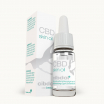
-
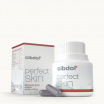
-

Look Younger CIBD0073











